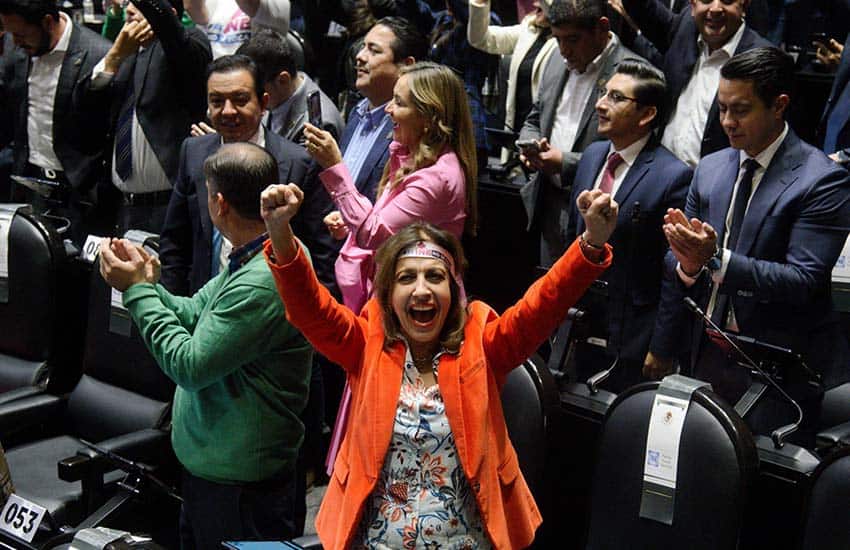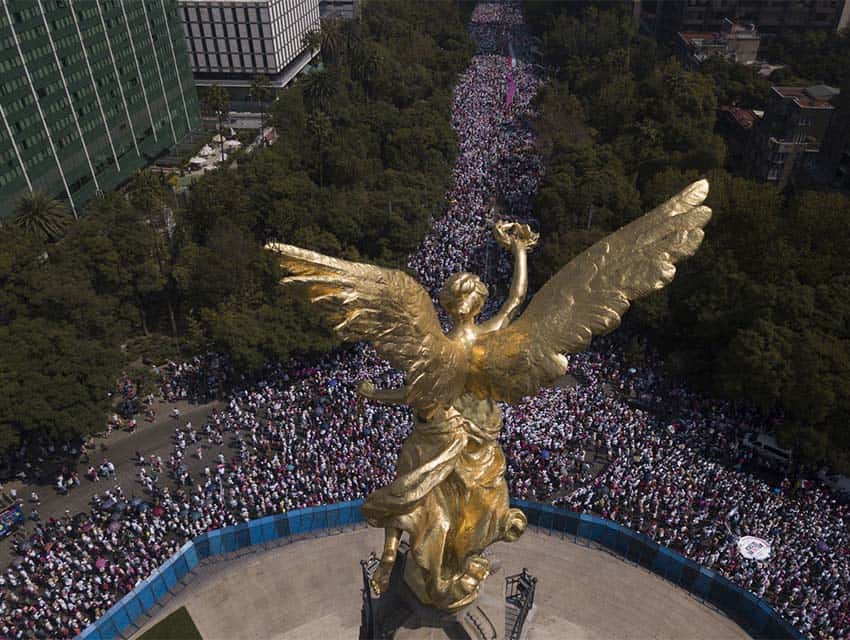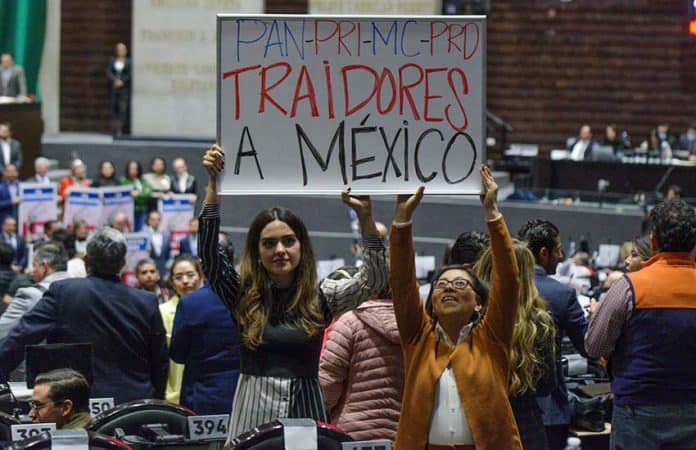President López Obrador’s proposed constitutional reform to the electoral system was blocked in the Lower House of Congress on Tuesday. However, the president’s “Plan B” reform to secondary legislation was approved in a session immediately following.
While constitutional changes required a two-thirds majority vote, changes to secondary legislation only require a simple majority. Of the 495 legislators in attendance, 269 voted for the constitutional initiative and 225 against. A total of 330 votes were required for it to pass with a two-thirds vote.
The constitutional reform would have dismantled the National Electoral Institute (INE) and replaced the 11 INE councilors elected by political consensus with seven directly elected delegates, among other changes.
“Mexico will not be Venezuela, Mexico will not be Cuba,” National Action Party (PAN) legislator Paulina Rubio Fernández shouted during the discussion.

Morena legislators referred to opposition politicians as “traitors of the homeland.”
Changes to the secondary legislation, which were promoted through a fast-track decree, received 267 votes in favor and 219 against. The ruling party Morena and its allies the Green Party (PVEM) and Labor Party (PT) supported the initiative.
The Institutional Revolutionary Party (PRI), the PAN, the Democratic Revolution Party (PRD), and the Citizens Movement (MC) voted against the reform.
“The legal reform has already been approved, but it is limited because it cannot contradict what is in the constitution, so the margins are very narrow. However, with those margins, and without violating the constitution, the Lower House has approved the electoral law,” President López Obrador said during his Wednesday morning press conference.
The “Plan B” reform consisted of changes to seven laws, and its proposed modifications include the following:
- Candidates who violate provisions on gender equality or who do not present their campaign expenses will be forced to withdraw their candidacies.
- The INE’s budget will be reduced and officials’ salaries will be decreased so they can not earn more than the president.
- Electoral authorities will have less oversight.
- It will be more difficult for small parties to maintain their legal registration. They will now need to maintain enough supporters in the most recent election to make up 0.52% of registered voters, compared to 0.26%.
- More specific definitions of electoral crimes will be outlined.
- The Preliminary Electoral Results Program (PREP), which provides same-day preliminary election results to the public via polling stations’ individual counts but are not considered the official vote count — would be eliminated.
- The dissemination of materials that could slander political parties or governments will be prohibited, which could potentially be used to criminalize campaign discourse.
President López Obrador claimed that the proposed changes will save 3.6 billion pesos (US $182.5 million).
The electoral reform has created controversy in Mexico. On November 13, an estimated 500,000 citizens marched throughout the country in defense of the INE. Then, on November 27, President López Obrador organized a countermarch in defense of his proposed electoral reform. An estimated 1.2 million people participated.

Ahead of the vote, Human Rights Watch warned that the measures would “put free, fair elections at risk.” The Washington Post also published an editorial claiming that the reform would damage Mexico’s democracy.
The proposal will now be discussed in the Senate. If passed, the opposition parties have already said they will file an unconstitutionality claim, challenging the reform through the Supreme Court.
Morena Senate Leader Ricardo Monreal announced that the 300-page initiative will not be subject to a fast-track in the Senate.
“In the discussion of the secondary laws of the electoral reform, the Senate will act with serenity and good judgment, taking care of the legal procedure,” Monreal said.
The current legislative session ends on December 15. If the reform is not discussed before this date, it will not be voted on until the next legislative session in February.
With reports by La Jornada, El País, and El Universal
